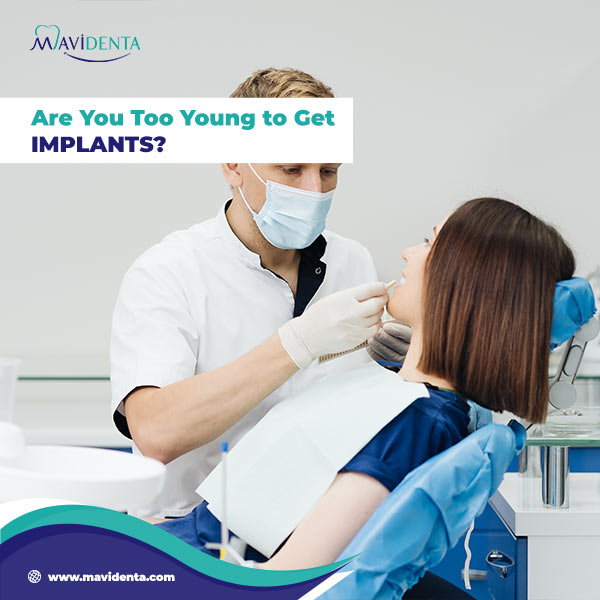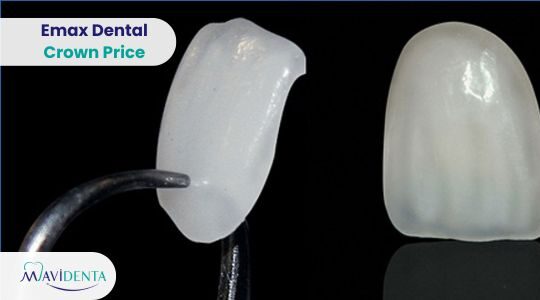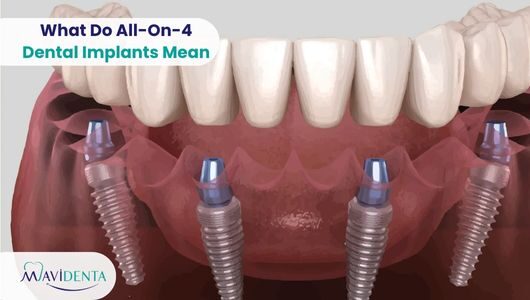dental implants young adults may not be preferable. Before performing screw-type dental implants for young adults who have not reached the age of 17-18 in males and 16-17 in females, treatment is planned by calculating and predicting development, and the decision is made whether to start treatment or not.
Therefore, the age ranges mentioned here are general averages. To get a clear idea about dental implants young adults, it is necessary to have a dental examination and X-ray examination by a dentist. Artificial teeth can be applied to all individuals who enjoy good general health at a young age, regardless of geriatric status.
Dental Implants Young Adults
Dental implants offer young adults a transformative solution for restoring their smiles and oral health. Whether due to congenital issues, trauma, or severe decay, tooth loss can be emotionally and functionally challenging, especially for those in their prime years.
Dental implants provide a durable, natural-looking replacement option that enhances aesthetics, supports proper chewing function, and preserves jawbone structure. For young adults, dental implants offer a long-term solution that can last a lifetime with proper care, providing confidence and improved quality of life.
Additionally, implants can prevent adjacent teeth from shifting into the gap left by missing teeth, maintaining proper dental alignment. Dental implants empower young adults to regain their smile’s beauty and functionality, supporting their overall oral health and well-being.
What young adults need to know about dental implants?
There are no dental implants young adults until after the age of 18; This is due to the lack of the necessary factors for dental implants, including:
- Jaw bone growth must be completed before dental implants are installed and before any procedure that includes surgery. Therefore, dental implants are not preferred for children under the age of 18.
- The location of the teeth you want to replace or the missing teeth, and the condition of the jaw bones in which the dental implants are placed.
- Paying attention to oral health and dental hygiene, as lack of attention to and neglect of oral hygiene leads to exacerbation of health problems and increases the possibility of dental implant failure.
- Delayed tooth appearance in children, as the timing of dental implants can be affected by the delayed appearance of permanent teeth.
Are You Too Young to Get Implants?

- dental implants young adults are not suitable, especially patients under the age of 18 years. Many studies have proven that dental implants after the age of 25 or 30 years may achieve the best long-term aesthetic result for the patient.
- It should be noted that dental implants are prohibited before growth and development are complete, because the implanted teeth are at risk of sinking when growth stops, thus increasing the possibility of an aesthetic problem.
Read about: Hollywood Smile in Turkey
- It is worth noting that the phenomenon of tooth sinking may occur more during the second and third decades of life compared to the fourth and fifth decades. According to a study published in the journal Clinical Implant Dentistry and Related Research in 2013.dental treatment cost in turkey
Reasons why a young adult might lose a permanent tooth
In addition, dental implants young adults. The failure rate of dental implants ranges between 5% and 10% of the total cases that undergo surgery. The body usually sends a group of signs and symptoms, whether they are short-term, during the first 3-4 months of surgery or a period after surgery that indicates the failure of the surgery, including:
Swelling of the mouth and cheek due to dental implants
Swelling of the jaw at the site of surgery is a normal symptom after surgery. It is expected to last up to 3 days and its severity ranges from mild to moderate. However, if the swelling persists for more than this, it is necessary to visit a doctor in order to find out the causes of the problem and treat it early.
Feeling severe toothache
You are expected to feel pain at the surgical site during the first week, so the dentist will prescribe a set of anti-pain and anti-inflammatory medications.
However, if the pain persists for more than 10 days, it is an indication that the dental implant may fail, so be sure to visit a doctor for early intervention to treat the problem.
Difficulty chewing
Difficulty chewing, speaking, or even just opening the mouth is one of the signs that dental implants have failed if the metal base is not installed in the correct position.
Read more: Is Dental Implants Safe?
Accidental impacts and sports injuries
Following your dentist’s advice after surgery is one of the main factors that affects how successful the procedure is. Therefore, the dentist adequately explains to the patient the complications, the symptoms expected to occur after the operation, and how to deal with them, including bleeding and swelling of the surgical site, And you can verify the expertise of our doctors.
However, neglecting the patient to follow the instructions of the treating physician, which we will learn about in the next few lines, leads to an increased possibility of implant failure, as a result of the person being exposed to a number of complications in addition to gum disease.
Improper dental care & oral health problems
Taking care of dental implants and avoiding implant failure requires following some tips. In addition, in the event of implant failure, the following tips may be appropriate in the recovery process:
- Follow the doctor’s advice: Make sure to follow the post-operative advice, by placing pieces of ice after surrounding them with a piece of gauze to reduce the possibility of swelling.
- Take care of your dental health by brushing your teeth twice a day with a fluoride-rich toothpaste.
- Make sure to visit the doctor on the agreed-upon follow-up schedule.
- Take the medications prescribed by the doctor on time, to avoid any complications such as infection or gingivitis.
- Contact your doctor as soon as you feel any of the symptoms we have previously discussed throughout the article.
- Quit smoking immediately: Smoking threatens the success of the transplant.
- If you have diabetes, be sure to control your blood sugar periodically to avoid any complications from the operation, such as slow wound healing, bleeding gums, etc.
Types of dental implants
In the medical field, dental implants young adults are treatments aimed at restoring missing teeth and improving oral function and aesthetic appearance. There are several types of dental implants and their prices, and the following is an explanation of some of them:
1.Bridge dental implants
Bridge dental implants are used to replace more than one missing tooth in the same area. The artificial bridge is installed with one or several implants and is attached to the teeth adjacent to it. This type of dental implant provides a permanent and stable solution to missing teeth. And sometimes it’s called all on 6 dental implant
2.Separate dental implants
Separate dental implants are used to replace missing individual teeth. The implant is fixed in the jaw with a small metal (titanium) screw and is attached to the immediate implant of separated teeth. This method provides high esthetics and natural function of missing teeth.
Several factors influence the type of dental implant suitable, including the number of missing teeth, the type of bone in the jaw, and the general condition of the mouth and teeth. Some may require prior treatment such as orthopedic implants before the final dental implant procedure.
You should consult your dentist to determine which type of dental implants young adults is right for you, and a comprehensive oral and dental evaluation may also be required or you can get free consultation
Factors affecting the duration of dental implants
When it comes to dental implants young adults, there are many factors that must be taken into consideration to determine how long treatment may take. Here are some factors that may affect the duration of dental implants:
Condition of the jaw and surrounding bones:
It may require restoration of the damaged jaw or bone reconstruction before proceeding with dental implants. It may take some time for new bone to accumulate and heal, which may affect the overall duration of treatment.
The presence of infections or infections:
If there are mouth infections or dental infections, this may affect the duration of dental implants. The patient may need to receive appropriate treatments to get rid of inflammation and infection before the doctor can begin dental implants.
The patient’s general condition:
If the patient’s general condition is unstable, such as the presence of serious health problems or immune disorders, the patient may have to receive the necessary treatments before proceeding with dental implants.
It may take a long time for the additional treatment that the patient undergoes before he is allowed to undergo the transplant.
Tooth growth factors:
In the case of young people and teenagers, there may be a need to wait for the teeth to fully form before having dental implants. This wait may take a long time depending on normal tooth development.
care after dental implants
After a dental implants young adults procedure, it is necessary to follow the necessary care instructions to ensure proper recovery and success of the procedure. Here are some tips and guidelines for proper dental care after implantation:
Taking the prescribed medication:
The doctor may prescribe some anti-inflammatory medications or analgesics needed to relieve pain and swelling after the operation. All instructions regarding timing and dosage of the medication must be followed.
Avoid excessive pressure on the transplanted area:
Avoid chewing hard or forceful food on the transplanted area, and refrain from strenuous exercise or lifting heavy objects for a certain period after the operation.
Good oral hygiene:
You should brush your teeth gently after the procedure using a soft toothbrush and toothpaste approved by your physician. It is also recommended to rinse the mouth with warm saline solution to reduce swelling and inflammation.
Healthy and balanced nutrition:
Eat healthy and balanced food that contains the necessary vitamins and minerals to promote wound healing and tissue recovery.
These are some general tips for dental care after implantation. However, the patient must contact his treating physician to obtain personal guidance and instructions appropriate to his condition and the results of the operation.
Also check: How Long After Dental Implants Can I Eat Normally
Conclusion
At the end of the text, dental implants young adults is a somewhat sensitive procedure, which requires many conditions and procedures for the patient to be able to perform them, and therefore the dentist is the one who has the decision based on your medical condition reports and the examinations that you have performed.
FAQS
Why are children and teens not eligible for dental implants?
Dental implants cannot be performed until the jaw is fully developed. For this reason, child and adolescent patients are not considered eligible for dental implants, since their jaw continues to grow and change. It is possible for the treatment to fail, and in general, a dentist must be consulted to evaluate the condition and develop a special treatment plan based on the patient’s current condition.
Can elderly people have dental implants?
The answer is yes, as patients in their late fifties and even in their late nineties can have dental implants. There is no maximum limit for them, and elderly people can have dental implants based on their oral health and general health.
However, in some cases, dental implants are not recommended for elderly people who suffer from serious health problems, because surgical operations may pose a risk to their general health. In general, dental implants are performed after a doctor conducts a complete assessment of the patient’s health.











